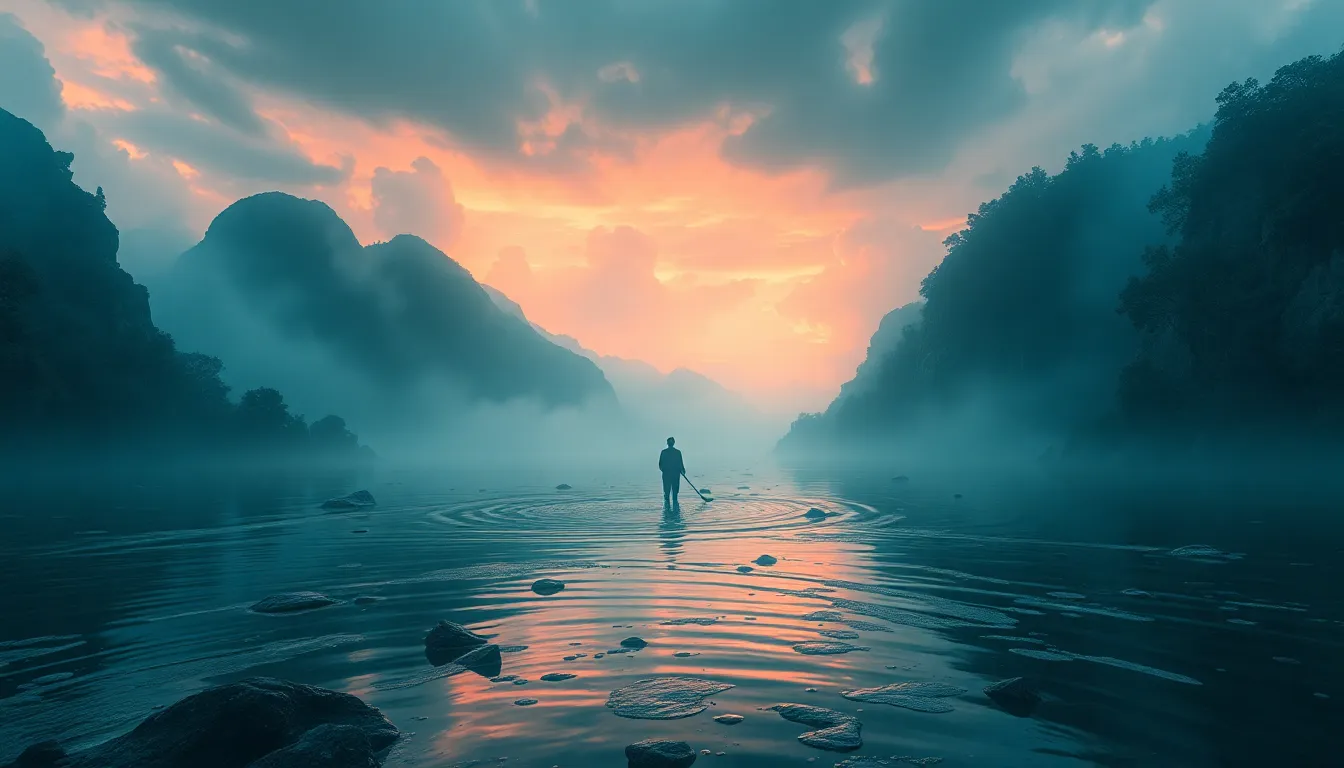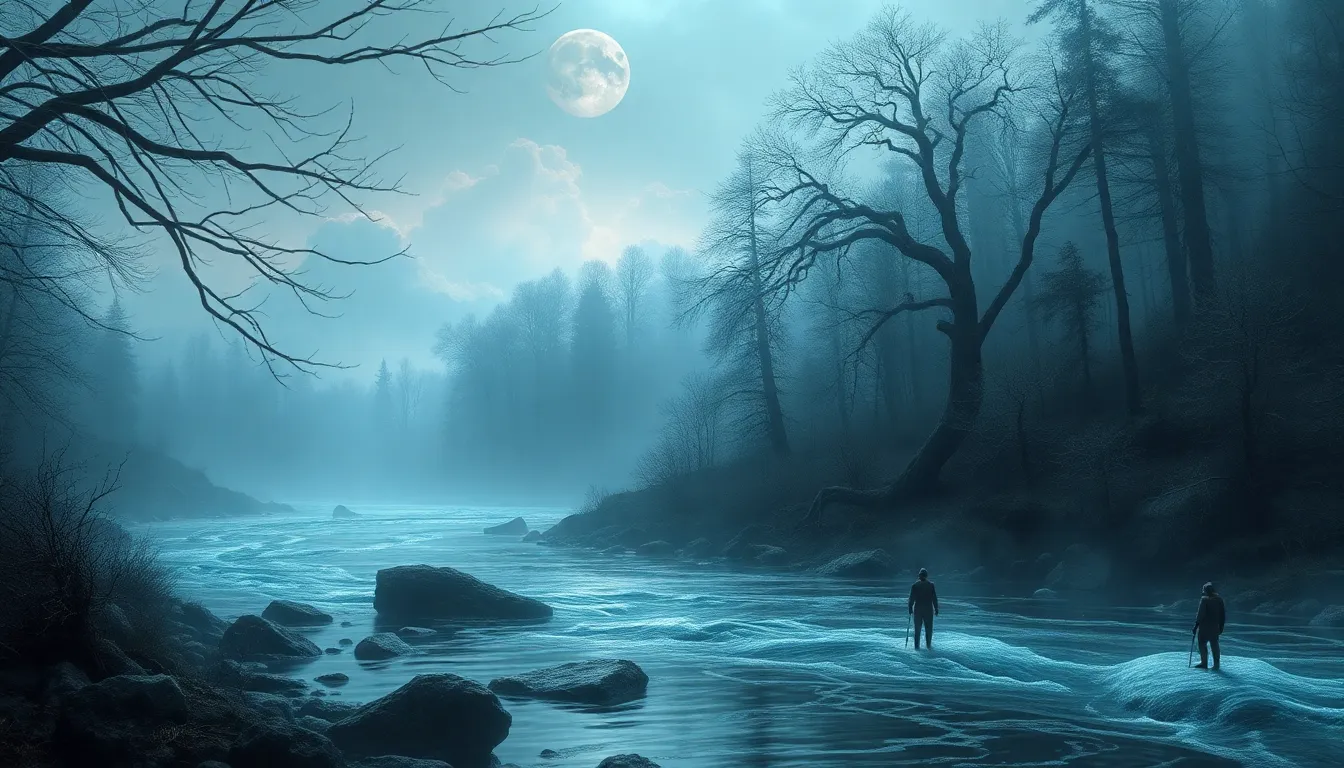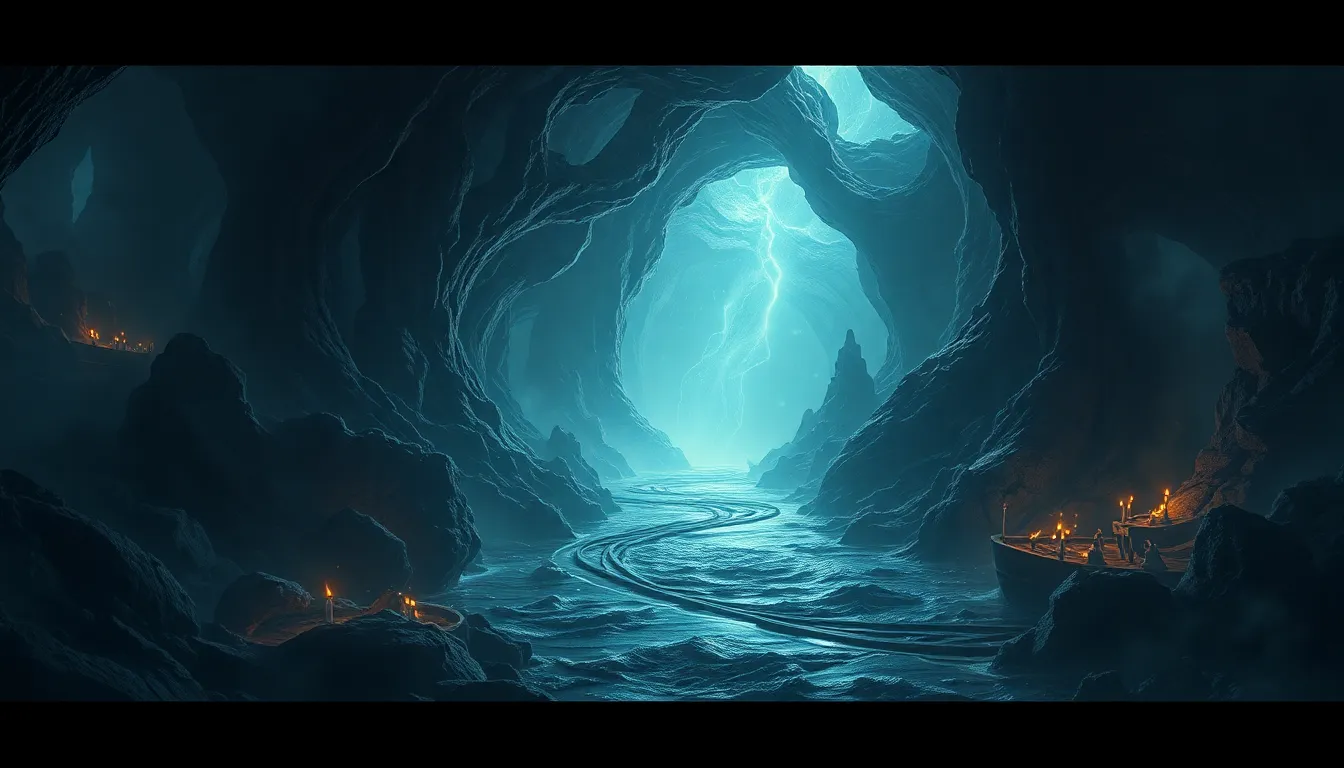The River of the Lost: Myths of Disappearing Travelers
Introduction to the Myth of the River of the Lost
The River of the Lost is a captivating legend that has transcended time and geography, weaving itself into the fabric of various cultures around the world. This myth often centers around the theme of travelers who mysteriously vanish, leaving behind nothing but whispers and echoes of their existence. The cultural significance of this myth lies in its ability to reflect our deepest fears and fascinations with the unknown, tapping into the primal instinct of survival and the dread of losing oneself in the wilderness.
Historical Context of the River of the Lost
The origins of the River of the Lost myth can be traced back to various cultures, each adding their own layers of meaning and interpretation. In ancient times, rivers were seen as both life-giving and perilous, embodying the duality of nature itself. Historical accounts abound of travelers and explorers who vanished near rivers, often leaving behind tales that would be told for generations. These stories serve as cautionary tales, reminding people of the unpredictable and treacherous nature of the world.
Cultural Interpretations of the River
The River of the Lost manifests differently across cultures, showcasing the rich diversity of human storytelling. Here are some notable variations:
- Native American Mythology: Many tribes speak of rivers as spiritual entities that guide or mislead travelers, often leading them to the afterlife.
- Celtic Folklore: In Celtic tales, rivers are gateways to the otherworld, where lost souls may wander eternally.
- Asian Legends: In some Asian cultures, rivers are seen as barriers between the living and the dead, with stories of travelers who crossed the river and were never seen again.
Rivers, in these narratives, often symbolize the journey of life, the passage into the unknown, and the thin veil between reality and the supernatural.
The Psychological Impact of the Myth
The myth of the River of the Lost evokes a complex interplay of fear and fascination. The idea of disappearing travelers resonates deeply with the human psyche, as it encapsulates our fears of the unknown and the uncontrollable forces of nature. This fear is often coupled with a sense of intrigue, as stories of disappearance can be both thrilling and terrifying. The unknown challenges our understanding of reality and compels us to confront our vulnerabilities.
Notable Tales of Disappearance
Throughout history, many travelers and explorers have become entwined with the myth of the River of the Lost. Here are a few notable cases:
- Lewis and Clark: During their expedition, several members reported eerie encounters and unexplained phenomena near rivers where they feared disappearing.
- Henry Hudson: The famed explorer vanished in the waters of what is now Canada, and legends suggest he may have been claimed by the river itself.
- The Lost City of Z: Percy Fawcett disappeared in the Amazon rainforest, with many speculating that he was swallowed by an unfathomable river.
These tales illustrate how the myth has been shaped by real experiences, transforming into cautionary fables that warn against the dangers of the wild.
The Science Behind Disappearances
While myths often take on a life of their own, there are natural phenomena that contribute to the stories of disappearance. Some of these include:
- Fog and Mist: Thick fog can obscure visibility, leading travelers to lose their way.
- Strong Currents: Rapidly flowing rivers can sweep individuals away, creating an illusion of disappearance.
- Whirlpools: These natural occurrences can trap and pull objects, including people, into their depths.
Additionally, psychological factors play a significant role in shaping perceptions of disappearance. Fear, panic, and the influence of local lore can lead individuals to misinterpret their surroundings, further fueling the myth.
Modern Interpretations and Adaptations
The myth of the River of the Lost has evolved significantly in contemporary literature and media. Modern interpretations often blend traditional elements with new narratives, exploring themes of identity, loss, and the search for meaning. Examples include:
- Literature: Novels such as “The River” by Peter Heller delve into the psychological aspects of wilderness exploration and the fear of losing oneself.
- Film: Movies like “The River Wild” highlight the dangers of nature and the thrill of adventure, echoing the themes of the myth.
- Art: Visual artists have depicted the River of the Lost in various forms, symbolizing the tension between beauty and danger.
The Role of Technology in Unraveling Mysteries
Advancements in navigation and search technology have transformed our understanding of the myths surrounding disappearances. Drones, GPS, and sonar technology have made it easier to navigate treacherous terrains and locate missing persons. This technological progress challenges the mystique of the River of the Lost, providing tools to demystify the unknown. However, it also raises questions about the nature of exploration and whether technology can truly capture the essence of human experience in the wild.
The River of the Lost in Popular Culture
The influence of the River of the Lost myth extends into popular culture, permeating various forms of entertainment:
- Video Games: Games like “The Legend of Zelda” feature rivers as crucial elements in quests, often linked to themes of exploration and mystery.
- Music: Artists have penned songs that capture the essence of wandering and loss, drawing inspiration from the myth.
- Visual Arts: Contemporary artists frequently explore the juxtaposition of beauty and danger in river landscapes, invoking the spirit of the myth.
Conclusion: The Enduring Legacy of the River of the Lost
The River of the Lost serves as a powerful reminder of the significance of myths in understanding human experiences. These stories encapsulate our fears, dreams, and the timeless quest for meaning in a world filled with uncertainties. As we continue to explore the mysteries of our surroundings, the allure of the River of the Lost persists, weaving its way into the tales we tell and the legends we cherish.



